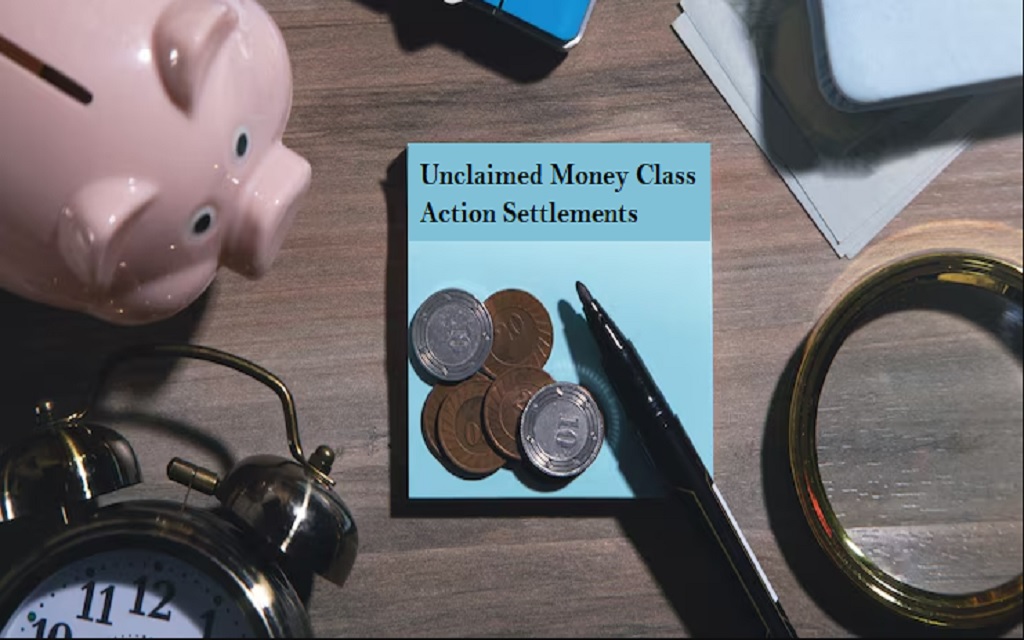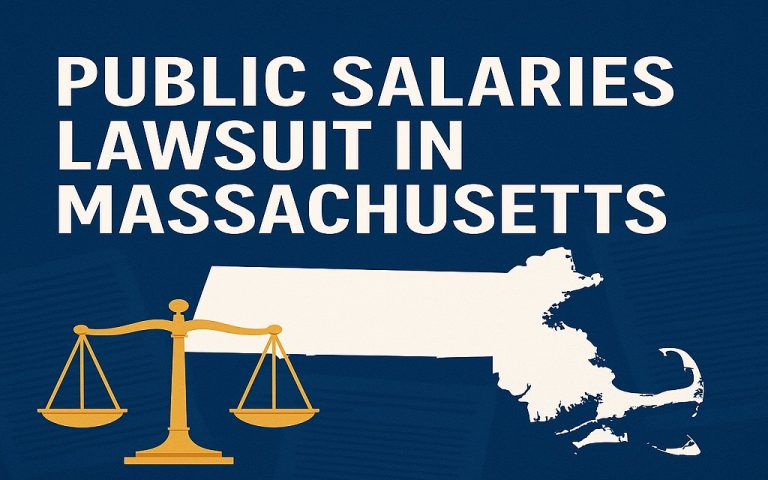Settlement payments in class action cases unclaimed by qualified class members are called unclaimed money. You might be curious as to why funds remain unclaimed in these situations. You can prevent losing out on possible compensation by being aware of the causes of this. Keep reading till the end if you want to know about it in depth, because in this article, we’ll describe unclaimed money class action settlements.
What Is Unclaimed Money in Class Action Settlements?

Settlement payments from class action lawsuits not claimed by qualified class members are considered unclaimed money. This circumstance occurs when people miss deadlines, neglect to file claims, or are not aware of their eligibility. Because of low claim rates and complicated administrative procedures, unclaimed monies can build up significantly.
What Causes Unclaimed Money in Class Action Settlements?
Several factors cause unclaimed payments in class action settlements. Let’s examine them.
1. Ignorance
The fact that they are a part of a class action settlement is not well known. You might not realize you qualify if you haven’t gotten a notification or missed it because your address is outdated. Potential claims are lost because settlement notices frequently do not reach all parties.
2. Complex Claim Processes
Class action claims require paperwork. Some processes may seem complicated or lengthy. If the anticipated payment is modest, you might not have the time or means to file a claim. As a result, fewer claims are submitted, and more money remains unclaimed.
3. Missed Deadlines
Class action lawsuits have strict deadlines for filing claims. You lose the right to claim if you miss the deadline. It’s easy to forget deadlines, particularly if the settlement letter is unreadable or delayed.
4. Low Individual Payouts
Some settlements pay out so little that people decide filing a claim is not worth the trouble. You may believe that the procedure isn’t worth your time or that the money won’t make a difference.
5. Uncertainty About Eligibility
Eligibility for class action settlements can be unclear. You cannot file a claim if you are unsure of your eligibility. Even when people are qualified, money is left unclaimed due to this uncertainty.
What Happens to the Unclaimed Money?
What happens to the money left behind? There are several outcomes.
1. Cy Pres Awards
If money remains unclaimed, courts often redirect it to charities or nonprofit organizations related to the case’s issues. Cy pres awards ensure that funds benefit those who are indirectly affected. For example, a consumer privacy lawsuit might direct funds to organizations that protect digital privacy rights.
2. Escheatment to the State
Unclaimed funds might also be turned over to the state under escheatment laws. These laws vary by state but generally allow the government to claim unclaimed property after a specific period. However, most class action settlements avoid this route to benefit the members directly.
3. Reversion to the Defendant
Unclaimed money may occasionally return to the defendant. This occurs when the settlement agreement states that unclaimed funds will return to the business or person who started the problem. Usually, courts closely examine this agreement to make sure it doesn’t compromise the settlement’s fairness.
4. Redistribution to Claimants
In some situations, the court mandates that unclaimed funds be transferred to people who have previously submitted claims. This approach guarantees that money is given to the people who need it, especially when sizable sums go unclaimed.
5. Reopening the Claims Period
Sometimes, courts reopen the claims period if they find the initial process flawed or not well-publicized. If this happens, you may have another chance to claim your portion of the settlement.
How Can Your Share Be Reclaimed?
In a class action settlement, you might wonder how to ensure you don’t lose out on your portion. Follow these steps to claim your portion.
1. Check Your Eligibility
Verifying your eligibility for a settlement is necessary. Look for class action websites to see whether your address or name is part of the impacted group. These websites frequently include search functions to assist you in confirming your eligibility.
2. Collect the Required Records
Once your eligibility has been verified, gather the necessary paperwork. You might require identification, receipts, or proof of purchase to demonstrate your participation in the class action. A more efficient claim procedure is guaranteed when everything is prepared.
3. Submit Your Claim
Submit your claim by filling out the necessary forms. While many settlements accept submissions online, some might need actual papers to be mailed. Make sure you file your claim before the due date. You won’t be able to get your share of the settlement if the deadline has passed.
4. Track Your Claim Status
Once your claim is submitted, monitor its status. Many settlements provide tools to track the progress of your claim. This way, you will know when your payout is on its way.
What Is the Amount of Money Unclaimed?
The amount of money that goes unclaimed in class action cases may surprise you. Studies say millions of dollars in settlement money are typically left unclaimed. The Volkswagen emissions scandal left over $200 million unclaimed in one of the most significant settlements in recent history. This figure demonstrates the substantial portion of possible compensation that is not collected.
While precise system-wide totals are hard to pin down, court orders routinely disclose exact residuals left after distribution rounds. Recent U.S. examples include $248,214.45 (W.D. Mo. 2021), $48,689.42 (E.D. Cal. 2022), $5,220.24 (S.D.N.Y. 2022), ≈ $2,400 (S.D.N.Y. 2023), and $33,267.23 (federal order, 2025). In each, judges directed the remainder via cy pres (e.g., Consumer Reports, Public Justice, investor-education charities) once further claimant redistribution wasn’t practical.
Case Overview
| Case | Overview & Key Figures | Relevance / Implication for Unclaimed Money |
|---|---|---|
| WellNow Urgent Care Data Breach Settlement (April 2023) | A data-breach class action settled for $4.4 million against WellNow Urgent Care, P.C. and related defendants. Class Action | Demonstrates that relatively modest settlement funds (in the multi-million range) still require claims by victims. If many eligible fail to claim, a meaningful portion could go unclaimed. |
| Cash App Referral Text Settlement (2025) | Settlement of $12.5 million by Block (parent of Cash App) involving unsolicited referral texts sent in Washington state. Claimants eligible for approx $88-$147 each. Investopedia | Shows how even smaller-scale class actions with modest per-person payments still generate large fund pools — and if awareness/claims are low, unclaimed money may accumulate. |
| Securities Class Action Settlements 2024 Overview | In 2024, U.S. securities-class actions (88 settlements) totalled about $3.7 billion in settlement funds. Cornerstone Research+1 | This huge overall pool underscores the scale of class‐action money in play. Even if just a small percentage goes unclaimed, the absolute value could be large. |
If redistribution isn’t feasible after a second round, courts frequently order cy-pres donations aligned with class interests, or (less often) escheat to states.
What Makes Unclaimed Settlement Funds Important?
If unclaimed money doesn’t directly impact you, you might not consider it. However, missing out on settlement funds is more common than you think. Since class actions may offer a means of recouping lost funds or making amends for wrongdoings, you should keep up with them. You can be eligible for money you were unaware you were owed if you are a class member.
After the Settlement Period Is Over, Can You Still Get Your Money Back?
Generally speaking, unclaimed money cannot be claimed after the claims period has ended. There are certain exceptions, though. The court may occasionally transfer the funds to a nonprofit or restart the claims procedure. If you miss the claim deadline, options may still be available depending on the settlement.
Recent U.S. Case Studies
| Year | Case / Court | Residual (Unclaimed) Amount | Court-ordered disposition |
|---|---|---|---|
| 2025 | [Order (WD—federal)] | $33,267.23 remaining after two distribution rounds from a $3.25M fund | Cy pres split between two nonprofits (one selected by each side). Media Content Publish |
| 2023 | City of Birmingham Ret. & Relief Sys. v. Credit Suisse Group AG (S.D.N.Y.) | $787.97 residual | Cy pres to the Institute for Law & Economic Policy. Justia Dockets & Filings |
| 2023 | In re (S.D.N.Y. securities matter) | ≈ $2,400 residual | Cy pres to the Investor Protection Trust (investor education). Justia Law |
| 2022 | In re Braskem Securities Litigation (S.D.N.Y.) | $5,220.24 residual | Cy pres to the Public Justice Foundation. PacerMonitor+1 |
| 2022 | (E.D. Cal.) | $48,689.42 residual | Cy pres to Consumer Reports. PacerMonitor |
| 2021 (bonus) | Allicks v. Omni (W.D. Mo.) | $248,214.45 residual from an $8.50M pool | Cy pres to designated recipients after second-round distributions. Justia Dockets & Filings |
Conclusion
You might not want to pass on the chance presented by unclaimed money in class action settlements. To ensure you get your share of the money, you should be aware of your eligibility, file a claim on time, and monitor the progress of your claim. Remember that the money is frequently redirected after the deadlines have passed; it won’t just sit there waiting for you to collect it. Stay informed about class actions to avoid leaving your share on the table.
Must Read: What Are No Proof of Purchase Class Action Lawsuits?
Musarat Bano is a content writer for JudicialOcean.com who covers lawsuits, legal news, and general legal topics. Her work focuses on research-based, informational content developed from publicly available sources and is intended to support public awareness. She does not provide legal advice or professional legal services.




